iPhone 7 vs Samsung Galaxy S7
Is the best iPhone a better buy than the stellar Samsung?
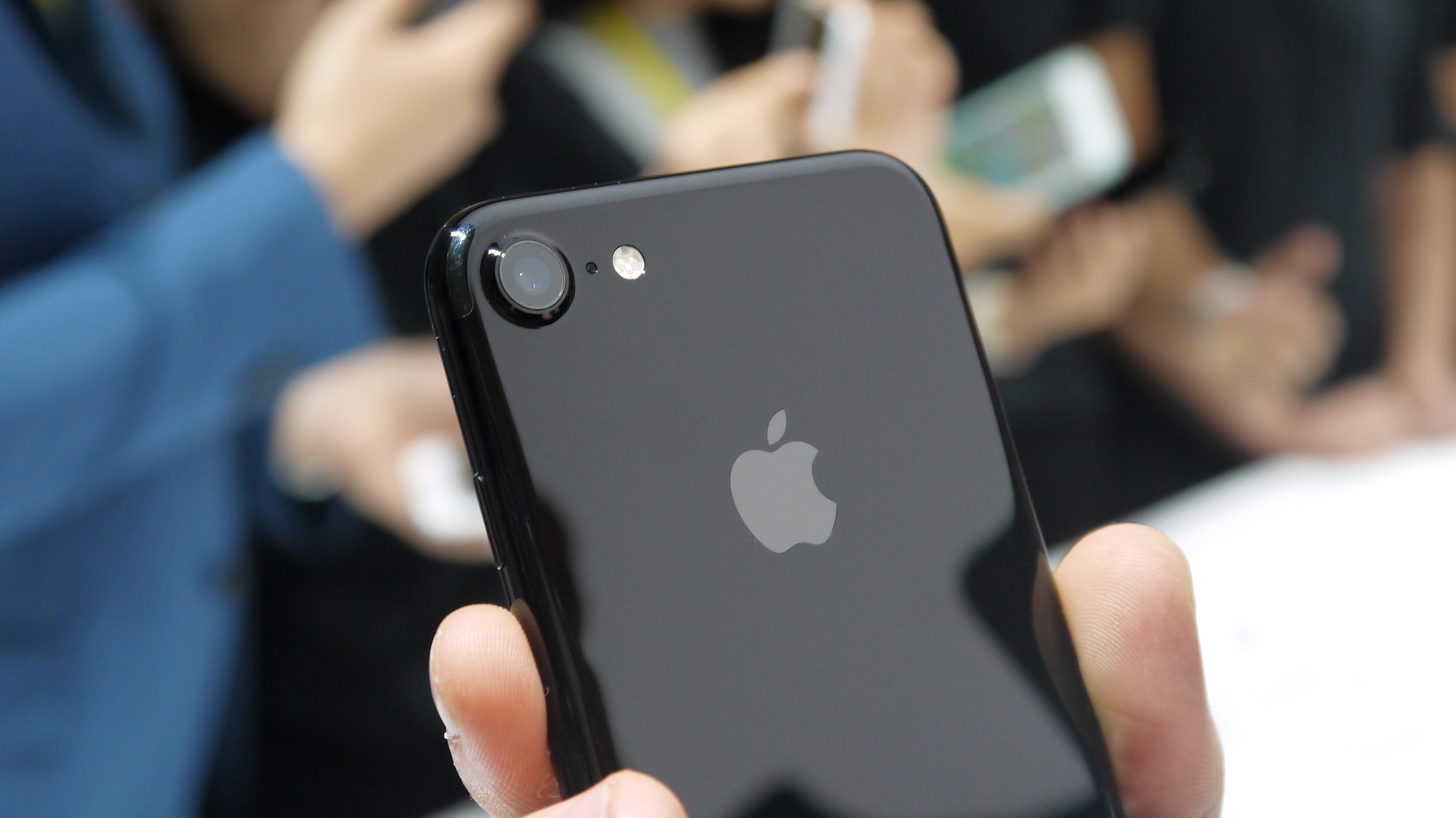
It's like Batman vs Superman, except not rubbish: we're talking about the smartphone superhero smackdown between Apple's latest iPhone, the iPhone 7, and Samsung's Galaxy S7.
Have we reached peak smartphone or is there still a substantive difference between the Apple and Android ways? Let's find out.
Design
Samsung stopped copying Apple some time ago, and the Galaxy S7 is a sleek, classy and mature-looking handset with a pretty Gorilla Glass back and a screen-dominated front.
It looks and feels good in the hand, although it also feels as slippy as the iPhone 6S did. If we had a penny for every time we dropped one of those, screen repairs wouldn't have been quite so bad for our wallet.
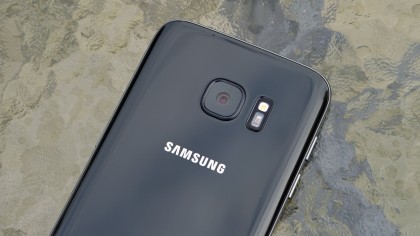
The iPhone 7 looks like a refined iPhone 6S, but there are some significant differences. The most obvious is the disappearing headphone port, which Apple has dumped partly to help it achieve IP67 water and dust resistance, partly to make room for an improved taptic engine, and partly because it wants us to spend £160 on its fancy-dan new wireless headphones.
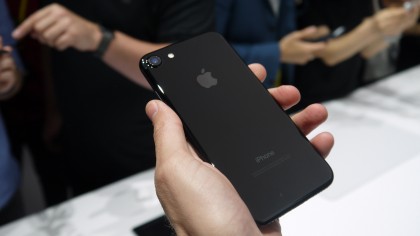
You get an adapter in the box but it means you can't charge and use the headphone adapter at the same time. iPhone musicians will miss the jack socket too.
The home button has been changed too. It's solid state and pressure sensitive, with the ability for third party apps to control its behavior.
Sign up for breaking news, reviews, opinion, top tech deals, and more.
And in a clever touch the earpiece speaker now acts as a second stereo speaker, which Apple claims helps the iPhone 7 deliver twice the volume and a wider frequency range than the previous iPhone. You're not going to make it the centerpiece of a block party, but it should be a lot better for watching YouTube in the kitchen.
Display
Samsung is rightly praised for its displays, and the one in the Galaxy S7 is a cracker. Its 5.1-inch Super AMOLED delivers 2,560 x 1,440 pixels at an impressive 577 dpi, and AMOLED's ability to light individual pixels without requiring a full backlight means its Always On feature shows notifications without waking up the rest of the screen. It's one of the best displays ever fitted into a smartphone.
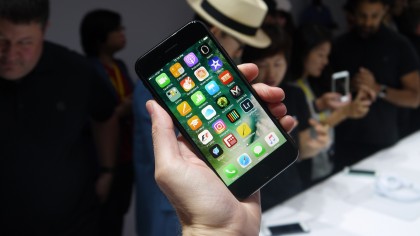
Apple's retina displays fell quite far behind Samsung and other Androids, and with the iPhone 7 that's still the case. The 4.7-inch IPS LCD still delivers 1,334 x 720 pixels at 326ppi, although it's 25% brighter and has a wide colour gamut for better colour reproduction.
Power and OS
The Galaxy S7 is powered by Samsung's own Exynos processor in Europe and a Snapdragon 820 in the US. The former is an octa-core processor and the latter quad-core. Both version get 4GB of on-board RAM and 64GB of storage, and the much-missed microSD card is back with support for up to 256GB of additional storage.
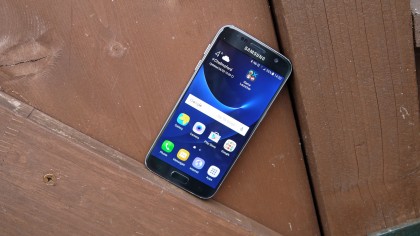
As ever, the OS is Android - Marshmallow in this case - with TouchWiz on top. Samsung has banished the bugs and much of the bloat that used to make TouchWiz irritating, and the result is fast and smooth.
Apple designs its own silicon, and the silicon in the iPhone 7 is the A10 Fusion. Apple says it's 40% faster than the A9, with two high-performance cores handling the hard stuff while two more energy-efficient cores do the less demanding work.
Storage has finally increased - the options are now 32GB, 128GB and 256GB, although the Jet Black model will only be available in 128GB and 256GB versions.
Camera
Both Samsung and Apple turned their backs on megapixels in the last twelve months. Apple went for a bigger sensor, while Samsung introduced dual pixel sensors that mean its 12MP main camera produces images far superior to rival cameras with many more megapixels.
It records 4K video at 30fps and includes optical image stabilization to help with low light and fast subjects.
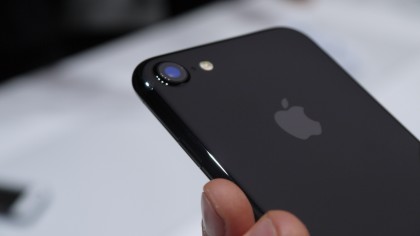
For the iPhone 7, Apple has improved the camera again - although once again the sweetest camera is in the bigger and considerably more expensive iPhone 7 Plus, which gets a clever dual-camera setup for DSLR-style portraits.
The non-Plus 7 has to make do with improvements to the 12MP, 4K sensor, optical image stabilization, a four-LED flash and a new image signal processor. The aperture is improved too, with f/1.8 promising significantly better low-light performance.
Battery
Apple was criticized for the battery in the iPhone 6S: at just 1,715mAh it seemed awfully small for such a big device.
The Galaxy S7 battery delivers 3,000mAh. Thanks to Android's improved battery management and features such as Doze Mode and Always On meaning you can check key things without lighting up the whole display, the Samsung has more than enough juice to get through a typical day without fuss.
Apple hasn't disclosed the specs of its iPhone 7 battery just yet, but it promises much improved battery life: on average, Apple says, moving from the iPhone 6S to the iPhone 7 will give you an extra 2 hours of battery life in daily use.
Release date and price
The Galaxy S7 is already out, and it's a very impressive $750 (£569, AU$900).
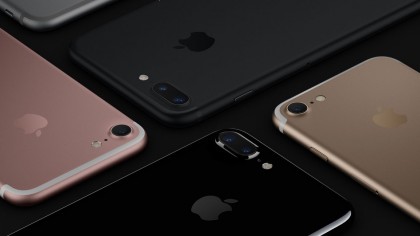
The iPhone 7 will go on sale on September 16th, with pre-orders going live on the 9th. Apple's iPhone Upgrade plan will launch in Apple Stores in the UK on the 9th too and it's already up and running in the US. Sorry Australia.
The prices aren't too bad with the 32GB version at $649 (£599, AU$1,079), 128GB at $749 (£699, AU$1,229) and 256GB at $849 (£799, AU$1,379).
Verdict
Both Samsung and Apple have their fans and haters, and as both phones are evolutionary steps forwards we don't see many people switching sides.
On paper the Samsung is clearly the best. It has a superior screen, a better processor, more storage and a lower price.
But as ever, Apple delivers a superior overall experience thanks to its control over the hardware and software. Is that worth paying an Apple premium for? Many people think it is, and the iPhone 7 is unlikely to change that.

Contributor
Writer, broadcaster, musician and kitchen gadget obsessive Carrie Marshall has been writing about tech since 1998, contributing sage advice and odd opinions to all kinds of magazines and websites as well as writing more than twenty books. Her latest, a love letter to music titled Small Town Joy, is on sale now. She is the singer in spectacularly obscure Glaswegian rock band Unquiet Mind.